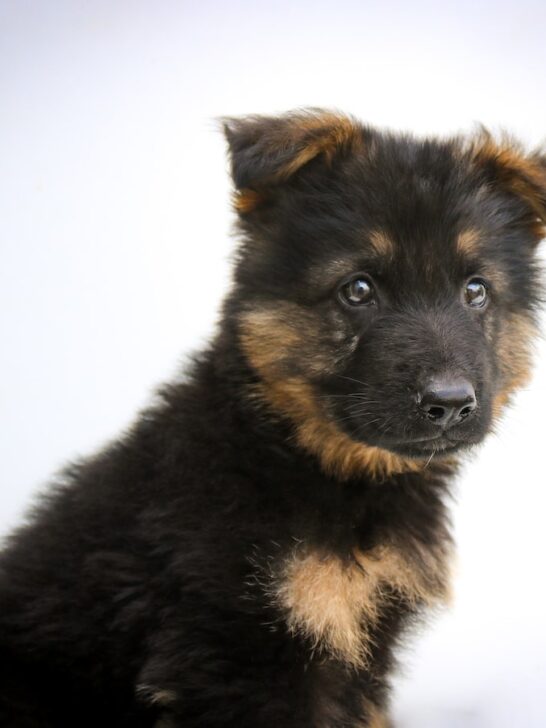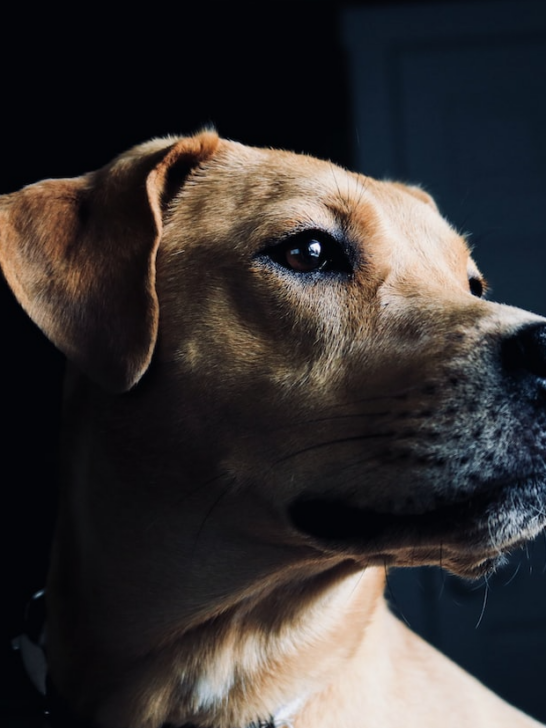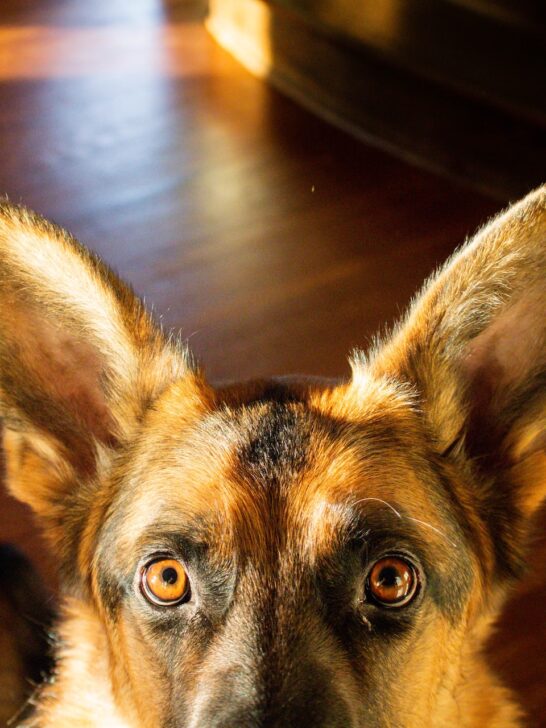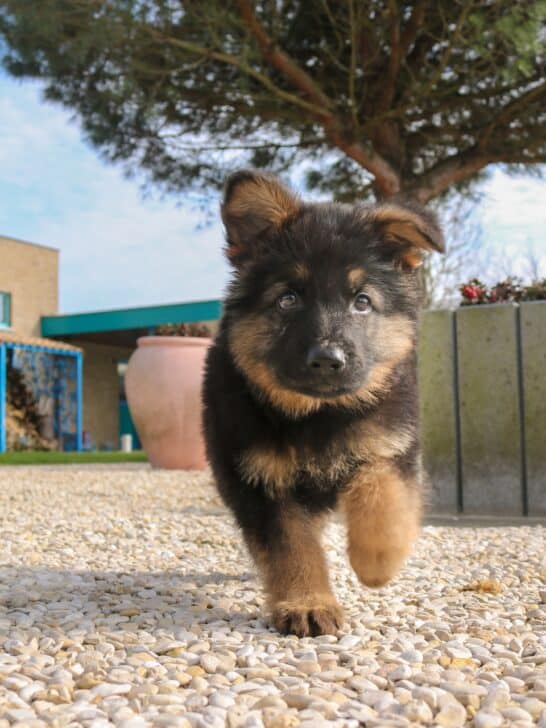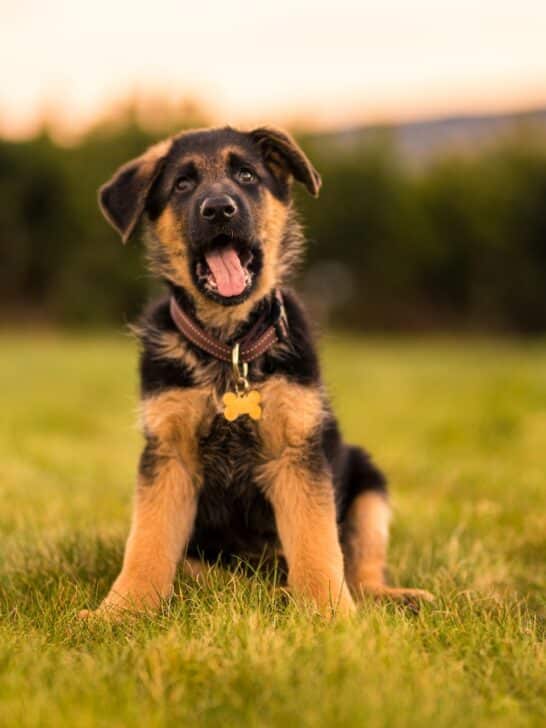How Often Do German Shepherd Puppies Poop? More Often Than You Think!
Getting a new puppy is always an exciting occasion. German Shepherds are one of the finest breeds on the market, given their high intelligence, playfulness, and ability to be trained.
When they are a young puppy, you will undoubtedly encounter indoor accidents, specifically poop.
When potty training your German Shepherd puppy, one of the most crucial things when it comes to establishing their bathroom regiment is how often they defecate.
Fortunately, there is a science to finding the answer.
The age of the puppy and their dietary habits will be the primary factors that determine how often the puppy will need to poop.
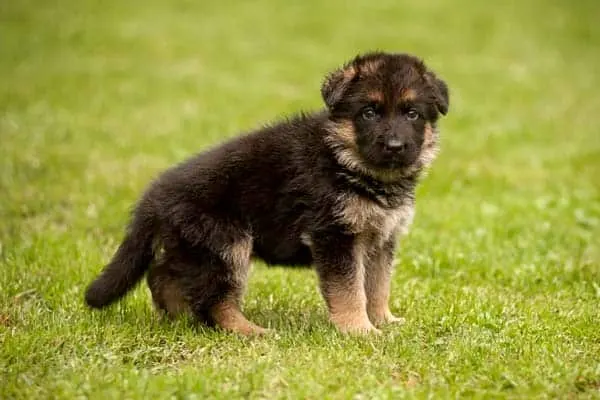
Why Does Age Matter?
Paula Fitzsimmons, a veterinarian, notes that food travels through a dog’s gastrointestinal tract three times as fast as a human’s.
The relevance behind this fact is dogs cannot hold in their poop and pee as long as their human counterparts.
According to Andrew Garf, a dog trainer, their age determines the degree of development the animal has when it comes to their biological ability to hold their pee and poop.
The timeline for the German Shepherd puppy’s defecation schedule will look like this:
During the first few weeks of the puppy’s life, the neonatal stage, their ability to hold their pee and poop is roughly a 30-minute span of time.
The puppy often relieves themselves right after they eat a meal, according to the dog aficionados at Treat for Trick.
From eight to sixteen weeks, the puppy will now be able to control its bodily functions for a duration of two hours.
Once the dog reaches sixteen weeks of age, they will need to relieve themselves within a four hour period.
When they develop to six months in age, they can last up to four hours.
Once they’ve reached maturity, they may hold their urine and poop for around eight hours. This period of time begins between one and three years of age.
The above list is a general guideline and should serve as a frame of reference.
Every dog is different, can be affected by other factors, and isn’t guaranteed to follow the time frame down to the letter, so learn to ascertain their potty patterns through experience.
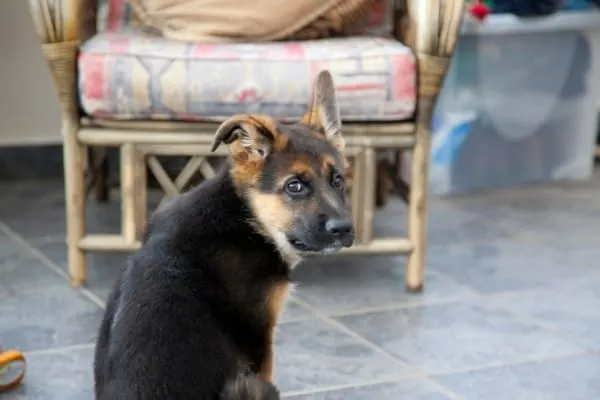
Dealing with Constipation in Your German Shephard Puppy
In the event your German Shepherd puppy isn’t pooping like normal, they may be dealing with constipation. Constipation is when your dog is having significant trouble defecating from their stool.
While there are more severe things that can cause constipation, such as a concurrent kidney disease or an enlarged prostate, often the dog has simply swallowed something difficult to digest.
Grass and hairs are frequent items that prevent the puppy from pooping normally. Dog bones, believe it or not, can cause this problem as well.
The experts at PetMD recommend providing the dog plenty of water, control bouts of their eating grass, and substitute a bone with a nylon chew toy.
Should the problem persist, take the puppy to a veterinarian clinic for the appropriate treatment.
Depending on how severe the situation, the dog may require hospitalization for the purposes of an enema procedure to eliminate any obstructions in their rectum
What if My Puppy Has Problems With Diarrhea?
On the opposite end of the spectrum, diarrhea in your German Shepherd puppy can be caused by a multitude of factors per Dr. Suchodolski.
Dr. Suchodolski identifies the following items as chief causes for diarrhea:
- Changes in diet
- Stress
- Parasites
- Bacterial or viral infections.
- Consuming nonfood material or garbage
- Intestinal blockage
One of the best preventative treatments you can offer your German Shepherd puppy is an appointment with a veterinarian. They can receive their shots to prevent worms and other unflattering parasites.
This video from Top Dog Tips outlines the ideal strategy to manage the animal’s diarrhea. Let the canine drink plenty of water and don’t let them eat anything within the first 12 hours of diarrhea.
These two actions will help cleanse the puppy’s digestive tract.
Should your furry companion’s diarrhea remain constant, it may be necessary to take them into a clinic for further treatment.
The Importance of a Quality Diet
The dog food that the German Shepherd puppy eats, including quantity, has a tremendous impact on their need to relieve themselves.
As listed in the prior subject, sudden changes in the dog’s diet can provoke a rough bout of diarrhea.
The breed is known for having sensitive stomachs, so you must be careful not to overfeed the puppy. Overfeeding, like massive shifts in the diet, will provoke diarrhea.
Depending on how your German Shephard puppy is responding to their food, you may need to change their diet.
Sam Shepards, an experienced owner of the breed, strongly recommends a high protein diet with an emphasis on high-quality fats, specifically Omega-3 fatty acids.

So How Do I Handle the German Shepherd’s Potty Habits?
To summarize, the dog’s age greatly impacts how often the canine will need to poop.
Health issues that can cause deviations in the animal’s normal poop patterns need to be detected so the matter can be addressed.
Health problems, such as an enlarged prostate, can cause constipation. A poor diet, a sudden change in the puppy’s food, lack of water, and parasitic infections are all separate things that can cause diarrhea.
By remaining aware of this information, you will be able to better pattern your dog’s pooping habits.
As the dog continues to advance in age, and you remain aware of these potential issues as an owner, you will be able to acclimate yourself to the German Shepherd’s potty schedule.
Potty time does not have to be a scary ordeal when it comes to your German Shepherd puppy. A routine for you and your dog means an easier time managing its needs.
Recommended reading:
- Why Do German Shepherds Eat Their Own Poop: Decoding This Distressing Habit
- When to Switch a German Shepherd Puppy to Dog Food: Giving Your Dog Optimal Nutrition
- What Do German Shepherds Eat? These 34 Things to Enrich Their Diet
- What Can German Shepherds Not Eat: Never Feed These 12 Foods to Your GSD














